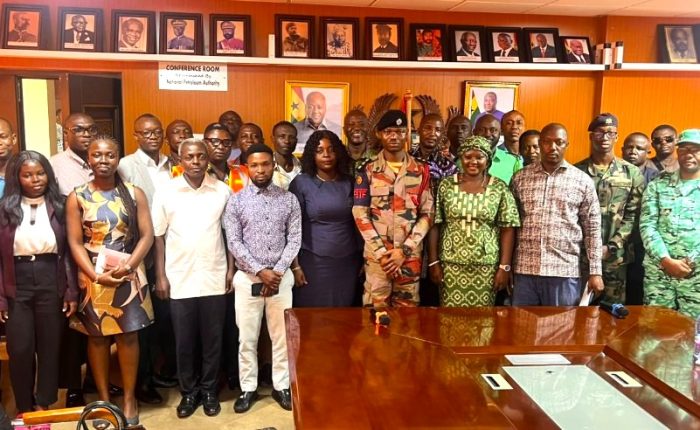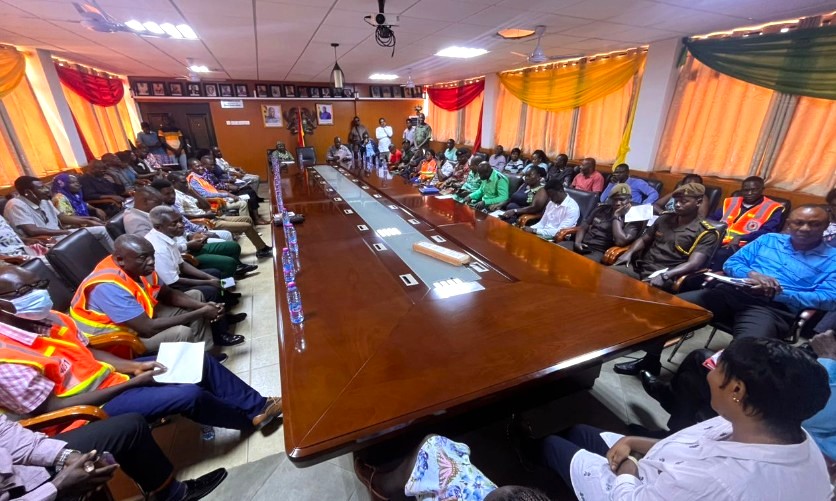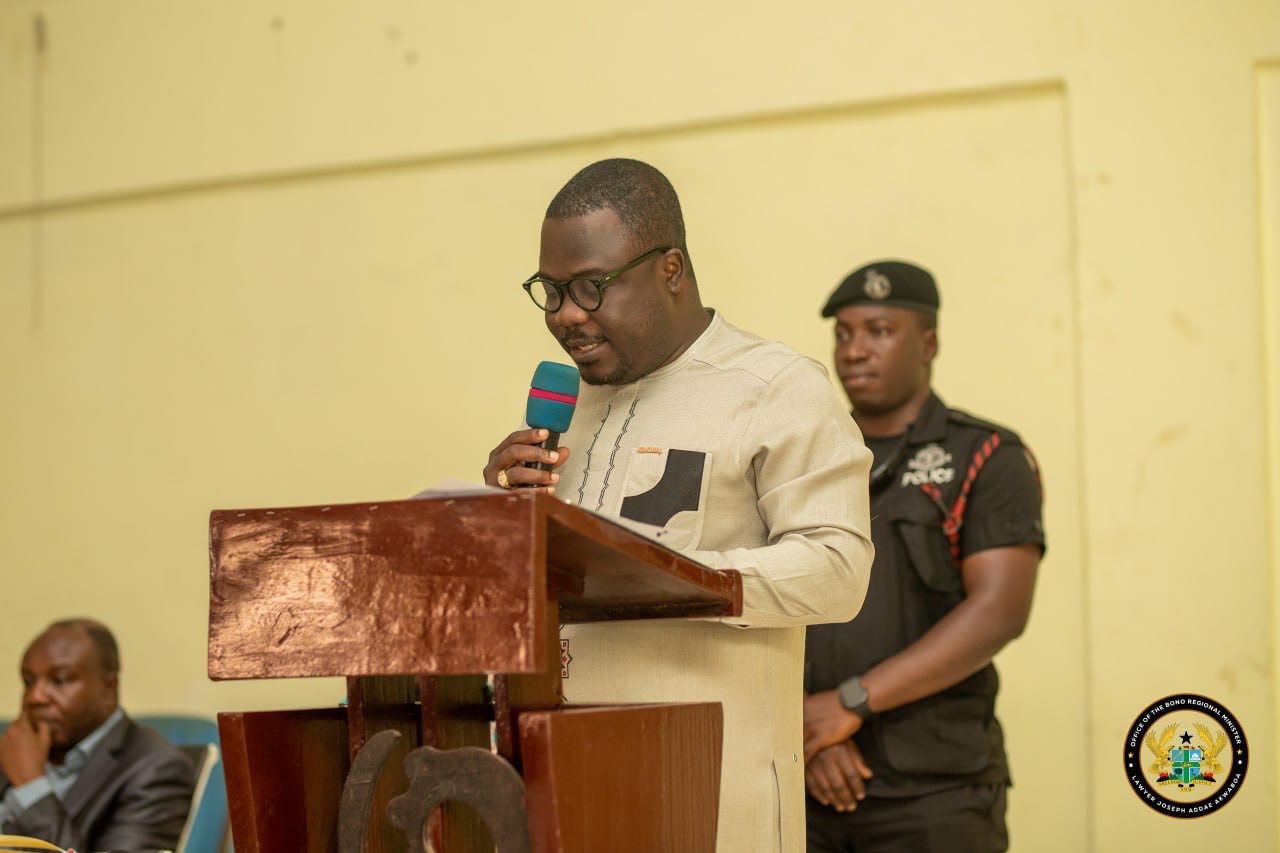BONO NADMO MARKS 2025 INTERNATIONAL DAY FOR DISASTER RISK REDUCTION WITH STAKEHOLDERS’ MEETING

The Bono Regional Office of the National Disaster Management Organisation (NADMO) has held a stakeholders’ meeting to develop practical strategies for preventing recurring disasters and flooding as the rainy season approaches.
The meeting, held on 13th October 2025 in Sunyani, brought together representatives from the security services, heads of departments and agencies, and other key stakeholders.
The event formed part of activities marking the 2025 International Day for Disaster Risk Reduction (IDDRR), which is observed globally every October 13. Established in 1989 following a call by the United Nations General Assembly, the Day seeks to promote a global culture of risk awareness and disaster reduction. It also highlights how communities worldwide are working to reduce their exposure to hazards and strengthen resilience.
This year’s celebration was themed “Fund Resilience, Not Disaster,” reflecting findings from the 2025 Global Assessment Report on Disaster Risk Reduction, which estimates the global cost of disasters at approximately $202 billion annually.

Speaking at the event, Mrs. Fati Kine-Lam, the Bono Regional Director of NADMO, called on government, private sector actors, policymakers, development partners, and donors to prioritize investments in resilience-building rather than focusing solely on post-disaster relief.
“We are pleading with all stakeholders to see the need to invest and improve disaster mitigation measures such as tree planting, modern drainage systems, and proper sanitation and waste management,” she urged.
Mrs. Kine-Lam emphasized that NADMO’s primary role is disaster management, not merely relief distribution, stressing that preventive action must precede disaster occurrence.
“We don’t have to wait for disasters to happen before we act,” she stated.
She added that this year’s IDDRR theme underscores the need to tackle the rising costs of disasters by shifting from reactive responses to proactive, long-term solutions. These include investments in improved infrastructure, early warning systems, and risk-informed development to build communities capable of withstanding shocks and stresses while saving lives and resources.
Mrs. Kine-Lam further cautioned Ghanaians and estate developers against building on waterways and flood-prone areas, urging adherence to proper spatial planning to avert preventable disasters.
















